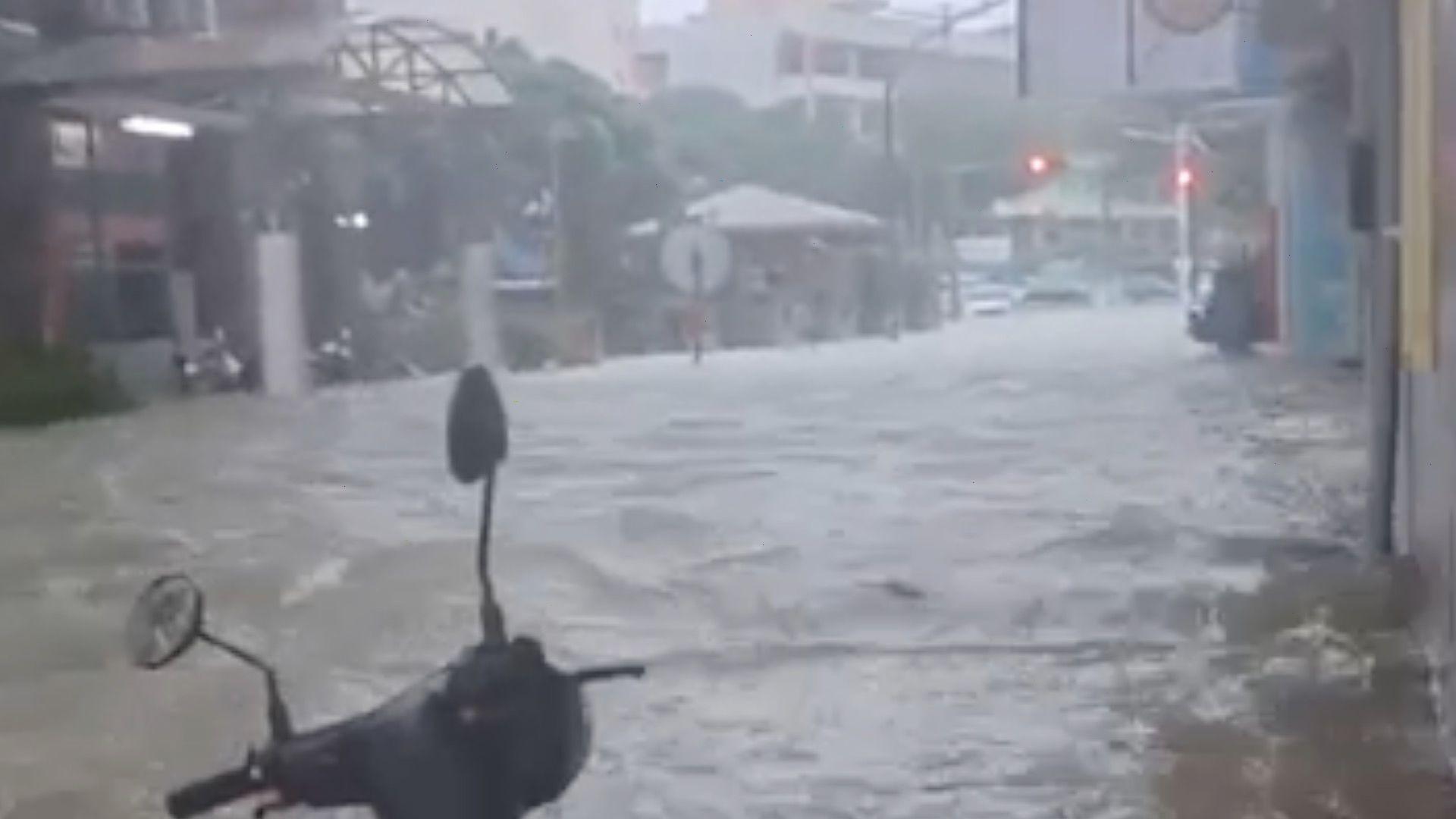Typhoon Gaemi hits China after deaths in Taiwan and Philippines
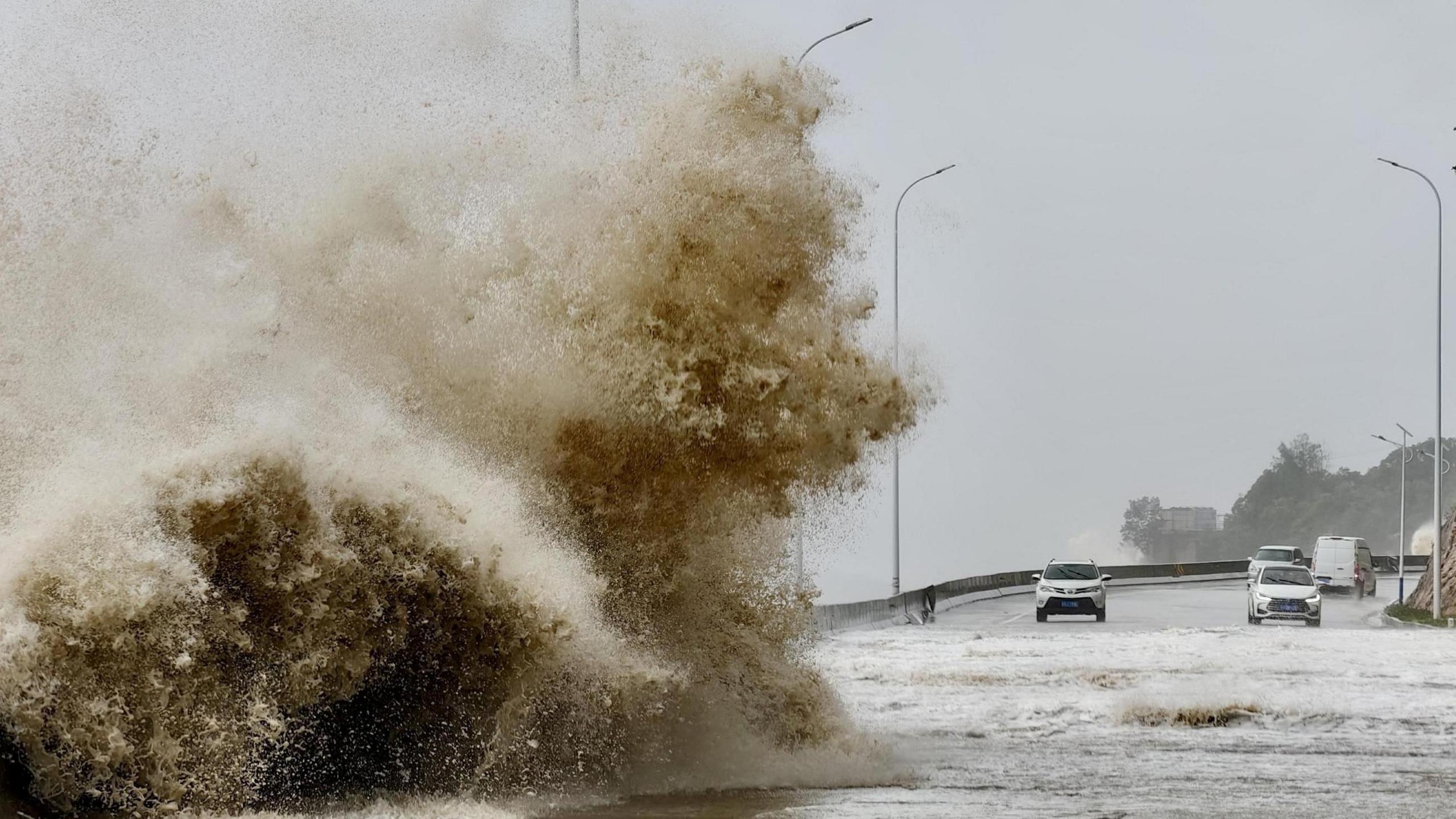
Waves crash on the coast of Sansha town, Fujian Province, as Typhoon Gaemi approaches
- Published
Typhoon Gaemi has made landfall in mainland China after wreaking havoc in Taiwan and the Philippines.
More than 150,000 people living in the south-eastern Chinese province of Fujian have been relocated to safer areas in anticipation of the storm.
It comes after widespread flooding and landslides across Taiwan and the Philippines, killing at least 21 people.
The Philippines says it is "racing against time" to contain an oil spill after a tanker carrying 1.5 million litres of industrial fuel capsized and sank off of the country's coast.
The ship was one of two which sank in the region on Thursday, with the second going down just off Taiwan's south-western coast.
China activated its highest-tier disaster warning as the storm made its way to its shores on Thursday evening local time.
Chinese President Xi Jinping chaired a meeting with the Communist Party's top leadership on flood control and disaster relief plans, state media reported.
Train services have been suspended in Fujian, while authorities in northern China have warned heavy rains could trigger landslides and flooding.
Meanwhile, the State Flood Control and Drought Relief Headquarters says there is a "high risk" of natural disasters.
China is experiencing a summer of extremely changeable weather, with heavy downpours in the east and south and scorching heatwaves in the north. It typically experiences heavy rain from the middle of July to mid-August.
Gaemi is taking a route similar to Typhoon Doksuri from last year, which caused widespread flooding across northern China, although there is a possibility that its route could change.
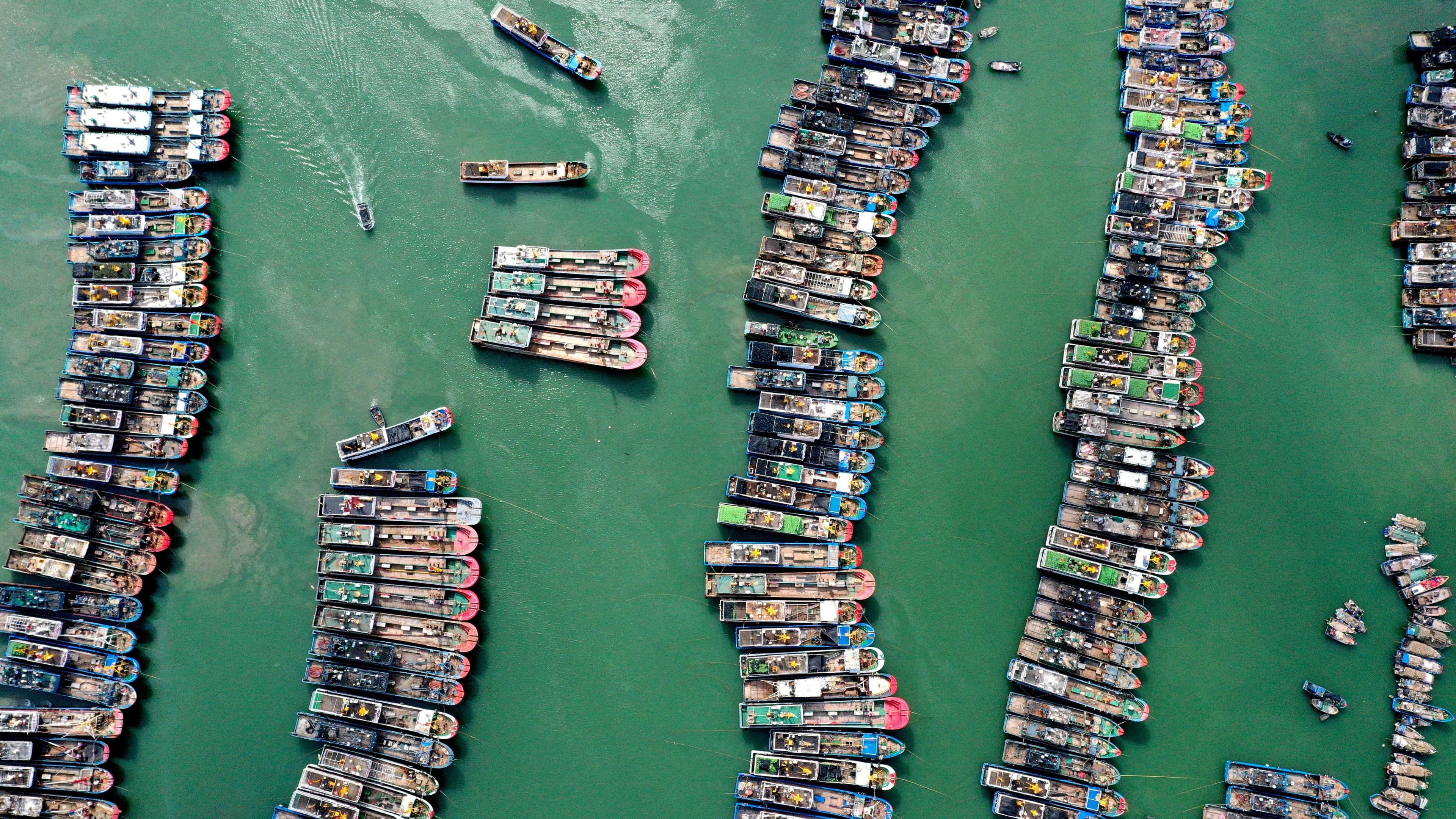
A drone view shows fishing boats being moored as Typhoon Gaemi approaches, in Lianjiang county of Fuzhou, Fujian province
A clean-up operation is currently taking place in Taiwan following the typhoon - the largest to have struck the island in eight years but only the first of this year's storm season.
Taiwan’s meteorological office said several areas of the island received more than 1000mm of rainfall between Wednesday night and Thursday lunchtime, while the southern city of Kaohsuing recorded 1350mm of rain.
It left large areas of the city under more than a metre of flood water and three people were killed.
A search and rescue operation is underway to find the remaining six Burmese sailors who were reported missing after their Tanzania-flagged cargo ship Fu Shun went down off the northern coast of Taiwan.
Three crew members have been rescued so far, but high winds and choppy seas are hampering rescue efforts, officials have said.
Five other cargo ships have been run aground close to the island.
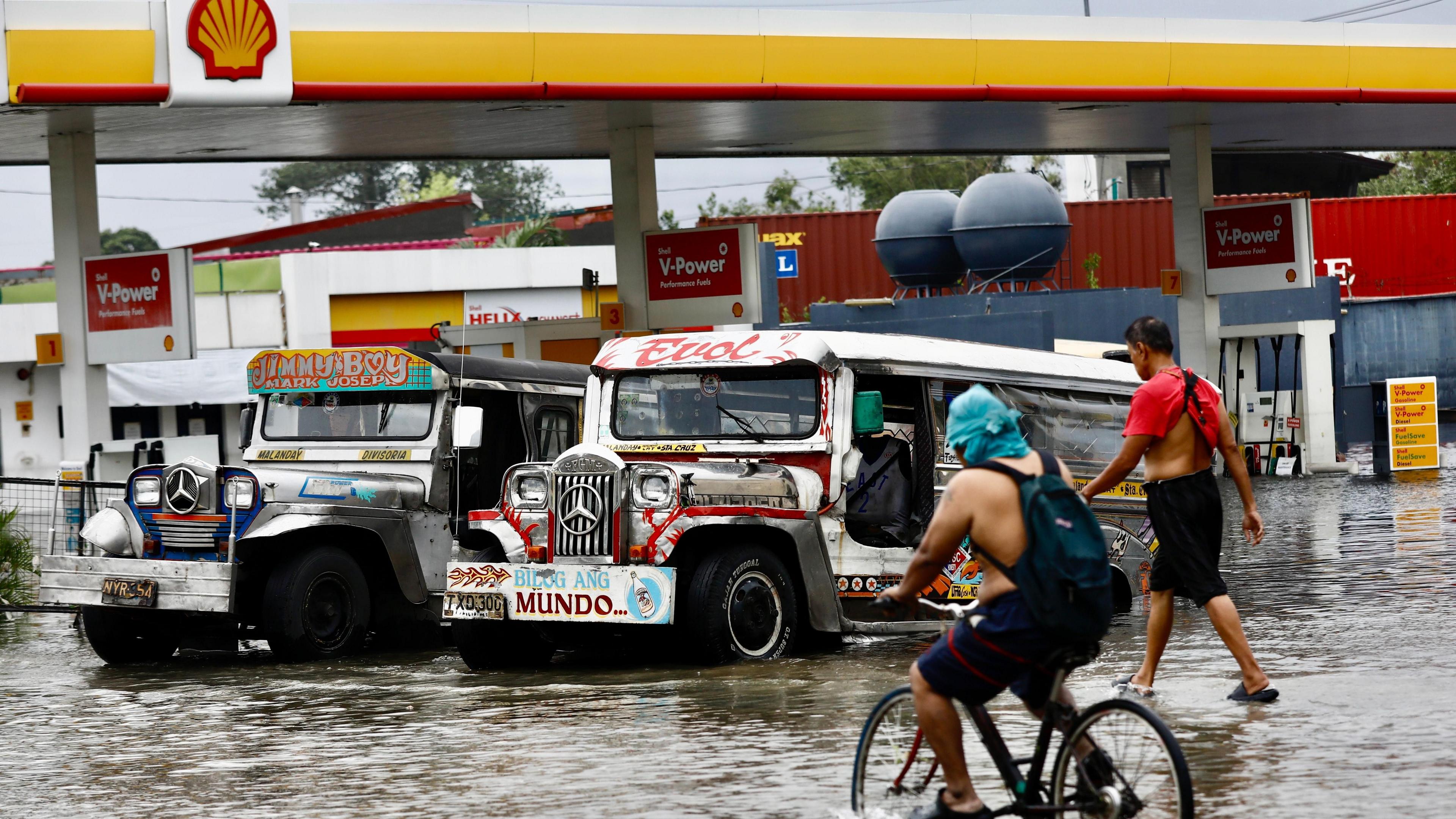
People wade to access a submerged gasoline station in Meycauayan, Bulacan, Philippines
Despite avoiding a direct hit by the storm, Typhoon Gaemi had intensified seasonal monsoon rains by the time it hit the Philippines, causing widespread flooding in Manila.
The storm caused the MT Terra Nova, a tanker that was heading to the Philippine city of Iloilo, to sink with 17 crew members on board.
The Philippine coast guard said it found the body of one missing crew member, and 16 others were rescued.
A huge operation is now underway to manage an oil spill which could be the worst in the country's history if not properly contained.
The coast guard has detected an oil slick stretching to about four kilometres, describing it as "enormous".
Rear Admiral Armando Balilo said the spill would "definitely affect the marine environment".
Manila Bay, where the tanker capsized, hosts busy shipping lanes and its shores are home to shopping malls, casino resorts and fishing communities.
Experts said that under ordinary circumstances officials would immediately deploy booms, or temporary floating barriers, to limit how far the spill can spread - but the bad weather has delayed these efforts.
Related topics
- Published25 July 2024
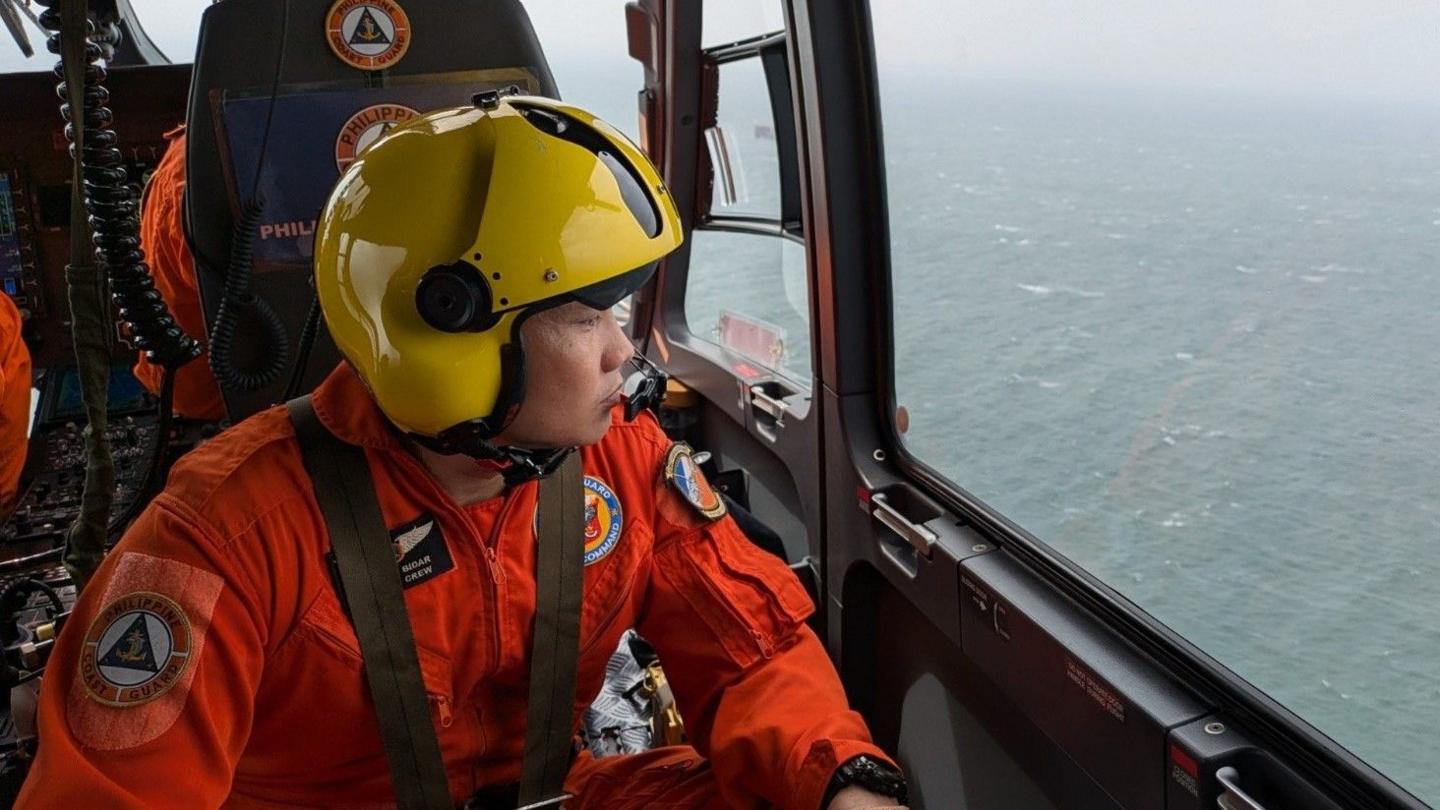
- Published25 July 2024
